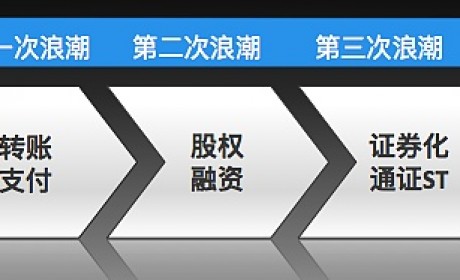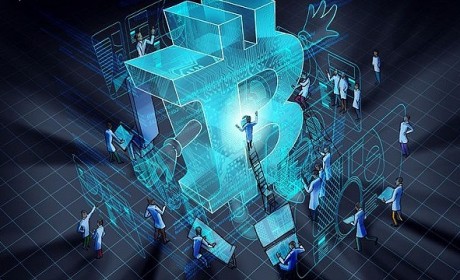潘基文:需要设计一个全球化合作系统以遏制对区块链技术的滥用
9月9日,由全球人工智能区块链30人论坛主办的“一带一路·智链万物”首届全球新技术产业论坛在香港召开。前联合国秘书长暨博鳌论坛理事长潘基文,以太坊创始人Vitalik Buterin作为本次活动国际特邀嘉宾出席并致辞,分别表达了对区块链的看法以及对三十人论坛未来发展的美好祝愿。
潘基文在会上表达了他对区块链技术的看法,他表示:“新的科技改变了我们沟通、交流和工作的方式,包括AI、区块链、生物科技和机器人在内的高新科技都能对我们的未来国家、社区、商业甚至人与人的关系带来革命性的变化。当然,在谈到人工智能和供应链技术时,我认为我们需要设计一个全球化合作系统,以遏制由于滥用而导致的任何后果,以保证我们能更好的使用这些技术。我们已经在这些高新科技领域取得了一些成绩,我相信我们有充分的机会让我们世界变得更美好。”

金色财经获主办方授权独家发布潘基文大会演讲全文,英文版稿件由主办方提供,为方便阅读金色财经将其翻译为中文,未再与主办方及演讲者做二次确认。
以下为潘基文在“一带一路·智链万物”首届全球新技术产业论坛上的中英文演讲内容,enjon~
中文版演讲内容:
感谢主持人的介绍。
各位嘉宾、女士们、先生们,能够在“第一届全球新技术产业论坛”上发表主题演讲,我感到非常荣幸。
首先我想感谢本次论坛的联合主办方——“南南合作金融中心”和“人工智能与区块链30人论坛”,以及“中国人民对外友好协会”和“中国人民银行研究院清华大学五道口金融学院校友会”邀请我来香港参加这个极具历史意义的活动。
我很高兴能回到香港。这是一个充满活力的全球化都市,拥有世界一流的文化,娱乐和经济中心地位。我总是很享受自己在香港度过的时间,也很高兴有机会再次回到这个重要的论坛。
南南合作金融中心是香港领先的国际非营利组织,也是促进、并利用南南合作的综合平台,旨在实现联合国可持续发展目标。
“全球人工智能与区块链30人论坛”是人工智能与区块链技术与产业发展和整合的新型合作平台,我对该论坛的正式成立表示衷心的祝贺。
这两个组织都在各自领域中将具有极强的前瞻性和远见卓识,并且凝聚了真正的合作精神,我相信他们的领导力和专业知识可以提供协同创新的全球性解决方案,以改善人类的未来。
我想借此机会向大家表示深深的谢意,不过是参会者、组织者,还是其他杰出的演讲者。我很荣幸今天下午能和你们在一起。
我必须承认,在我参加本次论坛之前,对于区块链的理解并不是那么深刻。然而,几个月之前,徐远重先生在韩国拜访了我,并且向我进一步解释了区块链和其他新技术的全球化应用。通过与徐远重先生富有启发性的对话,我觉得是命运引导我到这里来,我很高兴能够更多地了解这些尖端技术以及这些技术塑造世界的潜力。
我注意到,本届论坛汇集了很多知名企业家、高管、学者、以及媒体专业人士和独立投资者,大家一起来讨这个尖端技术。我相信,随着我们的共同努力,必将实现全球可持续性发展、和谐与繁荣,本次论坛也将会在合作与创新方面取得长足进步。
1
各位嘉宾,女士们,先生们,我们的世界正在经历明显的变化,也导致了不确定性和新风险的增加。第二次世界大战以后,国际秩序和多边机构所面临的挑战在各个领域都有所体现。尽管我们的世界联系越来越频繁,全球化趋势也在加速,但一些国家仍然比较封闭,关税正在威胁着自由贸易。
我们的气候也在发生变化,这给我们这个病态的星球带来了可怕的风险。与此同时,众所周知,新技术正在改变我们沟通,生活和工作的方式。不仅仅是人工智能和区块链技术,随着生物技术和机器人技术的全面发展,这些新技术将彻底改变我们国家,社区,企业乃至人际关系的未来。
然而,尽管存在不少挑战,我们在一些关键领域里仍取得了不俗的进步,我坚信我们也拥有宝贵的机会去改善这个世界。但要做到这一点,我们必须要共同努力,完成可持续性发展与合作关系的承诺。
我相信在相关工作中,技术主管、投资人和企业家的重要作用将是必不可少的。事实上,你们的活力,全球视野和领导力,以及想到的解决方案都始终站在人类的最前沿。
今天,我将向大家谈谈我们面临的一些最紧迫的全球挑战,以及如何通过智能政策,强有力的合作,以及开拓性创新帮助我们克服这些挑战,并在未来多年之后让全世界继续蓬勃发展。
首先,我将讨论合作实现联合国可持续发展目标的重要性。其次,我将讨论我们目前面临的最重大挑战:气候变化。
这两个问题会让我们的世界变得更加和谐,保护地球对后代也至关重要。尽管人工智能,区块链和其他高科技带来了许多好处,但如果不首先确保世界和谐并为我们的下一代保护好这个星球,那些今天谈论的所有这些好处将是徒劳的。
第三,我将强调国际合作,经济一体化和技术创新在追求全球和谐与繁荣方面的重要性,包括中国在这方面所起到的主导作用。当然,如果我们要成功地促进世界的和谐,可持续性和繁荣,每个人都必须在这个过程中发挥自己的作用,特别是作为技术投资领域里领导者的你们。
各位嘉宾,女士们,先生们,近年来,我们在全球发展方面取得了重大飞跃。在具有里程碑意义的联合国千年发展目标指导下,国际社会极大地改善了全球人类的福祉。到2010年,全球极端贫困率已经减少了一半,意味着有超过10亿人摆脱贫困,这确实是一项令人难以置信的成就。在此期间,全球五岁以下儿童死亡率减半,孕产妇死亡率降低了45%。
自1990年以来,全球已经有21亿人从改善的卫生条件中受益,现在有超过26亿人能够获得健康的水源。通过借鉴国家发展的成功经验,中国在实现联合国千年发展目标方面给予了非常大的支持,也是这些整个目标得以实现的重要组成部分。实际上,在1990年至2005年期间,由于中国的改革开放,中国有超过4.7亿人摆脱了极端贫困和饥饿。但目前,我们仍然有许多工作要做。现在,世界上还有近10%的工人和他们的家庭每天的生活费还不到1.90美元。每年,有600多万年龄不到五岁的儿童死亡,还有6.63亿人没有饮用水。由于气候变化导致全球干旱加速,这一数字有可能会进一步恶化。
在担任联合国秘书长的两个任期内,对于能够优先考虑并扩大全球发展工作,我感到非常自豪。制定“2030年议程”及其可持续发展目标(SDGs)是联合国最重要的成就之一,也是我最骄傲的个人成就之一。
联合国可持续发展目标于2015年在纽约的联合国总部获得了193个国家投票赞成通过,为解决目前最关键的一些全球化问题提供了接近方案,这些问题包括贫困,教育,不平等,气候变化,公共卫生和性别平等。
重要的是,联合国可持续发展目标也为实现全球可持续发展铺平了道路,同时还有效促进全球经济增长和社会包容度。
但是,如果我们要履行全球化发展承诺,构建积极的合作伙伴关系,吸引科技行业和你们这些商业领袖积极参与是必不可少的。
在这方面,联合国“2030年议程”中列出了17个目标(Goal 17),明确强调了行业领袖们应该发挥的突出作用,以帮助联合国及其成员国实现可持续发展目标。
联合国也呼吁“各利益相关方之间的合作关系能够进一步加深,彼此分享知识,专业技能,科技和财政资源,以支持所有国家实现可持续发展目标。”
2
我由衷地赞赏大家在这方面的努力,但今天,我恭敬地站在你们面前,请你们继续努力。我们都需要提升自己的行动,以确保能够在约定的日期之前实现可持续发展目标。我还认为,我们必须利用新的思路和方法,特别是在在全球发展领域内不断扩大技术和创新的作用。
近年来,技术一直在不断改变我们的世界,我们正处于“第四次工业革命”之中,因为新的技术进步正在改变我们的生活方式,思维方式和工作方式。这其中就包括人工智能,区块链,机器人,大数据处理,自动驾驶汽车,3D打印等先进技术。但是,我们始终需要注意,技术本身并不是解决全球复杂性问题的唯一方案,我们必须仔细考虑如何去设计和应用这些强大的新技术工具,以及它们所引发的道德问题。
各位嘉宾,女士们,先生们,我们的世界正在快速变化,也带来了明显的不稳定性和风险。由于这些变化,我们别无选择,只能在问题扩大之前努力保护这个脆弱的地球。然而,不幸的是,时间正在快速流逝。
你们很难相信,仅在过去几个月,气候变化问题又进一步加剧了,有些地方创下高温新纪录,有的森林遭遇野火袭击,还有极度危险的台风、飓风和洪水,以及不断上升的海平面。
这些事件清楚地表明,气候变化已经不再是我们未来需要面对的威胁。相反,这个威胁现在就已经在我们面前了。
正如我们所知,一个不断变暖的星球和不断升高的海平面可以从根本上改变我们的世界,而且,这些危机发生的时间可能会比大多数人所认为的更早。实际上,所有岛屿国家和大型沿海城市都将面临因气候变化而导致的迁移风险。
目前,约有2.75亿人生活在沿海城市地区,如果全球温度上升3摄氏度,那么这些地区将被淹没,基本上无法再居住了。其中,风险最大的城市都在亚洲,包括香港,上海和大阪。
因此,我们必须立即采取必要措施应对气候变化,否则这些转变毕竟会不断地给我们的大城市带来危险,而且还会引发全球动荡,甚至导致家庭,企业和工厂土崩瓦解。气候变化会让台风更加频繁和激烈,最终威胁整个社区和国家。
考虑到这些严峻的现实,我们必须加强集体合作,遵照执行“巴黎协定”。最重要的是,我们没有B计划,因为我们也没有适合移居的其他星球。
2015年,由197个国家签署的“巴黎协定”为我们提供了一个明确的行动计划,旨在应对目前我们星球上遭遇的严重威胁。“巴黎协定”设定了可行的目标,以阻止全球气温上升,控制温室气体排放,并促进气候适应性发展和绿色增长。
在担任联合国秘书长期间,这是我最骄傲的成就之一。而且我真的相信,“巴黎协定”是我们最好的希望,对于我们这个生病的星球,“巴黎协定”可以缓解日益严重的环境变化威胁。但要实现这一目标,我们需要继续合作。
的确,我们必须继续前进。各国政府,联合国和其他主要利益相关者——比如民间社会团体、技术领导者、以及像你们这样的投资者,需要利用合作的力量巩固“巴黎协定”的成就,进一步推动改善全球气候变化。
在努力实施“巴黎协定”时,确保有足够的资金来应对气候变化是我们工作的重要组成部分。
我们还必须记住,除了为我们脆弱的地球谋求福祉而共同努力之外,科技行业的积极参与也有利于应对气候变化问题。
毕竟,如果我们的地球环境退化、或是环境受到气候影响,那么商业和投资根本不可能存在,所以我们必须永远记住,我们都在一条船上。在这方面,我希望你们可以考虑与联合国绿色气候基金合作,该基金旨在“释放发展中国家中的私人企业在清洁能源和气候恢复项目的潜力”。
而在应对气候变化方面,利用人工智能和区块链技术来改善我们的星球,将有助于促进所有利益相关方提升参与度和透明度。
3
另外,我对美国政府退出巴黎气候协议的决定感到遗憾。这种做法不仅在科学上是错误的,而且在经济上也是不负责任的,特朗普总统将走上历史错误的一面。
不过,在执行“巴黎协定”问题上,中国国家主席习近平对展现出了坚定而有力的领导力。 2016年,当中国在杭州举办G20峰会时,习主席和美国总统奥巴马邀请我参加此次活动,向我提交了巴黎气候协议批准证书。同时,习主席对应对气候变化的坚定承诺也激励其他国家的领导人效仿,巴黎协议随后也获得了前所未有的生效速度。
各位嘉宾,女士们,先生们,在这个分裂和不确定的时代,我坚信,应对气候变化和实现联合国可持续发展目标是两个必须通过团结世界、并构建合作和伙伴关系才能完成的工作。很明显,我们能否集体生存取决于能否拥有一个可持续发展的地球。
事实上,这项紧迫且具有历史意义的事业也可以创造大量就业机会。因为在培养基本合作关系,经济增长,社会包容和创造更大利益的时候,能够创造出很多新的基于。我相信,使用尖端技术将成为这项工作的核心。
中国国家主席习近平提出了建立“人类共享未来的共同体”的愿景,通过利用创新技术,我们可以在这些重要领域展开联合行动。我们也必须记住,人类仍处于一个多边体系之中,依靠前瞻性的领导支持,对于全球合作是至关重要的。
从这个角度来看,我认为中国目前已经在自由贸易,可持续发展,经济一体化和气候变化等问题上做出了表率。与此同时,中国的科技产业——特别是数字技术——正在加速发展,随着最新的尖端数字技术产品和平台商业化,将为消费者,新机遇和国外市场敞开大门。
作为一个为致力于自由贸易,全球发展,多边机构、以及创新和思想转型的超级大国,这种创新与“一带一路”等卓有远见的项目相结合,可以进一步巩固中国的全球地位。
在人工智能和区块链技术方面,我认为我们需要设计一个全球化合作的系统来遏制因滥用技术而产生的各种后果。
最近,亨利•基辛格(Henry Kissinger)博士发出强烈警告,反对人工智能不受限制的发展,他认为这么做将对人类未来产生非常严重的后果。
如果人类不限制人工智能技术的使用,那么这种新技术将会与核武器一样,具有极大的破坏性和危险性。在这方面,我建议建立一个国际机制,以便借鉴原子能机构对核武器的监督措施,来控制和监测人工智能的发展和使用。
为此,我必须重申国际社会建立协作与合作伙伴关系的重要性。我真诚地希望你们这些人工智能和区块链技术领域里的顶尖专家可以认真考虑我的建议。
我衷心期待你们展现卓越的领导里,也希望中国政府能够在这方面发挥领导力。
各位嘉宾,女士们,先生们,请允许我在结束发言时再多说几句,尽管我们面临着很多挑战,而且这个时代也充满了很多不确定性,但如果我们在合作,创新,协议、以及推动全球愿景精神等方面不断努力,就一定会不断发展,并且茁壮成长。
同时,在这个充满了不确定,不断变化,各种新威胁频发的时代,我们绝不能背弃以多边外交和自由贸易为基础的国际体系。我们应该始终以务实的理想主义向前推进,也需要有更宏观的思考,全球化的新的,并负责任地推进技术和业务获得成功。
我知道我们可以做到这一点,因为我们根本没有其他选择。通过你们积极参与,我们可以,也必将实现最终目标。并且我相信,我们的世界肯定会继续蓬勃发展,为我们的孩子,我们孩子的孩子,以及更多子孙后代创造一个可持续的,和谐和繁荣的世界。
非常感谢大家的关注。谢谢。
(翻译:金色财经 shark)
英文原版演讲内容:
Thank you for your kind introduction.
Distinguished Guests, Ladies and Gentlemen,
It is my great honor and privilege to deliver this keynote speech at the “First Global New Technology Industry Forum.”
I extend my gratitude to the co-hosts of this Forum, “Finance Center for South-South Cooperation” and “Forum 30 on Artificial Intelligence and Blockchain,” as well as the sub-sponsors, “Chinese People’s Association For Friendship With Foreign Countries” and “Alumni of PBC(People’s Bank of China) School of Finance in Tsinghua University,” for inviting me to this historically meaningful event here in Hong Kong.
I am so excited to be back in Hong Kong. This is such a dynamic global city that boasts world class culture, entertainment, and economic centrality. I always enjoy my time visiting, and it’s wonderful to have the opportunity to return again for this important Forum.
The Finance Center for South-South Cooperation is a leading international non-profit organization here in Hong Kong and serves as a comprehensive platform in promoting and harnessing South-South cooperation with a view towards achieving the UN Sustainable Development Goals.
And “Forum 30 on Global Artificial Intelligence and Blockchain” is an exciting new cooperative platform for the development and integration between AI and blockchain technology and industry. I offer my sincere congratulations on your official launch today.
Both of your organizations are forward-thinking and visionary in your own spheres, and by coming together in the true spirit of partnership, I believe that your leadership and expertise can synergize innovative global solutions for the betterment of humanity for the days, months, and years ahead.
I would like to take this opportunity to show my deep appreciation to all of you, from the attendees to the organizers to the other distinguished speakers. I’m honored to be here with you this afternoon.
I must admit, prior to my introduction to this Forum, my understanding of blockchain was fairly basic. However, a few months ago, Mr. Xu Yuanzhong visited me in Korea and further explained the utility of blockchain and other new global technologies.
As a result of these enlightening conversations, fate has steered me here today. I’m excited to learn more about these cutting-edge technologies and their potential to shape the world for the better.
I take note that this first Forum brings together leading entrepreneurs, executives, scholars, media professionals, and independent investors to discuss cutting-edge technology.
I am confident that this Forum will go a long way in bolstering cooperation and innovation as we collectively strive for global sustainability, harmony, and prosperity.
Distinguished Guests, Ladies and Gentlemen,
Our world is going through pronounced changes and this is resulting in elevated uncertainties and new risks.
Challenges to the post-Second World War international order and our multilateral institutions are being felt in a variety of spheres. Tariffs are threatening free trade, and some nations are even turning inward despite our increasingly hyper-connected and globalized world.
Our climate is changing as well, and this is bringing dire risks to our ailing planet.
At the same time, as you all know well, new technologies are altering how we communicate, live, and work. Not only sweeping advances in the fields of AI and blockchain which are subjects of this Forum, but also biotechnology and robotics will revolutionize the future of our countries, communities, businesses, and even interpersonal relationships.
However, despite these challenges, we have made progress in key areas and I firmly believe that we also have invaluable opportunities to change the world for the better.
But to do this, we need to work together through a driving commitment to sustainability and the power of partnerships and cooperation.
And I believe that the prominent role of technology executives, investors, and entrepreneurs such as you will be essential in these efforts. Indeed, your dynamism, global outlook, and leadership stand at the forefront of new solutions to better humanity and our planet.
Today, I will speak to you about a few of the most pressing global challenges that we face and how smart policies, robust cooperation, and trail-blazing innovation can help us overcome these challenges and flourish for many years ahead.
First, I will discuss the importance of coming together in partnership to achieve the UN’s Sustainable Development Goals.
Second, I will discuss perhaps the most significant challenge we currently face: climate change.
These two issues are critical in making the world more harmonious and preserving the world for our future generations. Despite the many benefits from AI, blockchain, and other high technologies, it would be futile to talk of such benefits without first ensuring that the world is harmonious and preserving this planet for the next generations.
And third, I will highlight the benefits of international cooperation, economic integration, and technological innovation in the pursuit of harmony and prosperity, including China’s leading role to this end.
But we must all play our part in this process, particularly tech and investment leaders and such as you, if we are to succeed in advancing harmony, sustainability, and prosperity around the world.
Distinguished Guests, Ladies and Gentlemen,
We have taken significant leaps forward in the field of global development in recent years. The international community, guided by the landmark United Nations Millennium Development Goals, has undoubtedly improved human welfare around the world.
Extreme poverty rates have been cut in half by 2010. This represents over 1 billion people and is truly an incredible achievement. During this period, the under-five mortality rate has been halved and rates of maternal deaths have been reduced by 45 percent.
And since 1990, 2.1 billion people have benefited from access to improved sanitation and over 2.6 billion people now have improved sources of water.
China’s extraordinary national development experience and success in implementing the UN’s Millennium Development Goals was integral to these global gains.
Indeed, between 1990 and 2005, more than 470 million people in China were lifted out of extreme poverty and hunger as a result of China’s reform and opening-up.
But there is still much work to be done. Nearly 10 percent of the world’s workers and their families still live on less than $1.90 a day. Over 6 million children perish each year before they reach their fifth birthday.
And 663 million people remain without drinking water. This figure is in danger of worsening as a result of climate change-accelerated droughts.
During my two terms as UN Secretary-General, I am proud to have prioritized and expanded the importance of the Organization’s global development efforts.
The 2030 Agenda and its Sustainable Development Goals (SDGs) is one of the UN’s most significant achievements, and one of my proudest personal achievements.
Adopted by 193 countries in New York in 2015, the SDGs offer us a way forward to confront the most critical issues of our time. These include poverty, education, inequality, climate change, public health, and gender equality.
The SDGs also, crucially, light a path to achieve sustainable development while simultaneously promoting responsible economic growth and social inclusion.
But global partnerships, including the active participation of the technology sector and business leaders like you, are essential if we are to connect the dots to deliver on our development commitments.
In this regard, Goal 17 of the 2030 Agenda clearly highlights the prominent role that industries such as yours should play to help the UN and its Member States achieve the SDGs
It calls for “multi-stakeholder partnerships that mobilize and share knowledge, expertise, technology and financial resources, to support the achievement of the sustainable development goals in all countries.”
I commend your ongoing efforts in this regard, but today, I respectfully stand before you to ask you to further expend these efforts. We all need to elevate our actions to ensure that we achieve the SDGs before their target date.
I am also of the view that we must harness new thinking and approaches, particularly in regard to the expanding role of technology and innovations in the global development arena.
Technology has been steadily transforming our world in recent years, and we are currently in the midst of a “fourth industrial revolution” as new advancements alter our way of living, thinking, and working.
This includes artificial intelligence, blockchain, robotics, big data processing, autonomous vehicles, 3-D printing, and others. However, we must remain mindful that technology alone is never a guaranteed solution to problems of global complexity, and we must carefully consider the ethical concerns of designing and applying these powerful new tools.
Distinguished Guests, Ladies and Gentlemen,
Our planet is changing quickly and this is bringing with it marked instability and existential risks. As a result of these changes, we have no choice but to immediately expand our efforts to protect our vulnerable earth before it is too late. The clock, however, is unfortunately ticking.
Consider the climate shifts we have seen in just the past few months alone. From record breaking heat waves and wildfires, typhoons and hurricanes of dangerous intensity, to flooding and rising sea levels.
These events clearly demonstrate the fact that climate change is no longer a threat to us in the future. Instead, it is here right now.
A warming planet and rising sea levels could radically modify our planet as we know it, and this could occur sooner than most believe. Indeed, entire small island states and large coastal cities are at serious risk of forced climate displacement and inhabitability.
Currently, some 275 million people live in coastal urban areas that would be flooded and rendered largely unlivable with 3 degrees Celsius of global warming. And the cities at the greatest risk are right here in Asia, including Hong Kong, Shanghai, and Osaka.
So we must immediately take the necessary steps to combat climate change, or these turbulent shifts will continue to bring dangerous scorching heat waves to our megacities. They will lead to the wholesale flooding of homes, businesses, and factories. They will make typhoons even more frequent and intense. They will existentially threaten entire communities and countries.
With these harsh realities in mind, we simply must step-up our collective efforts to implement the Paris Agreement. The bottom line is that we don’t have a plan B simply because we don’t have a planet B either.
The Paris Agreement, signed by 197 countries in 2015, offers us a clear game plan to confront these serious threats to our planet. It sets viable targets to impede rising temperatures, constrict greenhouse gas emissions, and spur climate-resilient development and green growth.
During my time serving as United Nations Secretary-General, this is also one of my proudest achievements. And I truly believe that the Paris Agreement offers our best hope to persevere over the serious threats to our ailing planet. But to achieve this goal, we need to keep working together.
Indeed, we must continue our momentum forward. Governments, the UN, and other key stakeholders such as civil society groups and tech leaders and investors like you, need to leverage the power of partnerships to build on the achievement of Paris and push climate action even further.
And securing the necessary financing to confront climate change is an essential part of our global efforts as we work towards implementation of the Paris Agreement.
We must also remember that in addition to working together for the greater good of our vulnerable earth, private and tech sector engagement to combat climate change is also good for your bottom line.
After all, innovation, business, and investment, simply cannot flourish on a planet wrought by existential environmental degradation and hindered by climate-related conflict. We must always remember that we are all in this together.
In this regard, I hope you will consider engaging with the UN Green Climate Fund, which is designed to “unleash the potential of the private sector for clean energy and climate resilience projects in developing countries.”
Employ your advances in AI and blockchain for the betterment of our planet. This will go a long way in promoting greater engagement and transparency for all stakeholders in the fight against climate change.
In this regard, I regret the decision of the US Government to withdraw from the Paris Climate Accord. It is scientifically wrong, economically irresponsible, and President Trump will be on the wrong side of history.
On the other hand, President Xi Jinping of China exercises firm and strong leadership to implement the Paris Accord. In 2016, when China hosted the G20 summit meeting in Hangzhou, President Xi and President Obama of the US invited me to the event to hand over their Paris Climate Accord ratification certificates to me.
President Xi’s firm commitment to responding to climate change galvanized other world leaders to follow his suit, and the Paris Accord was then put into force at an unprecedented speed.
Distinguished Guests, Ladies and Gentlemen,
In this era of division and uncertainty, I strongly believe that fighting climate change and achieving the UN’s SDGs are two efforts that simply must unite the world through cooperation and partnership. Quite plainly, moving forward for our collective existence depends on it.
But this urgent and historic undertaking can create opportunities as well. We can create new opportunities for the cultivation of essential partnerships, for economic growth, for social inclusion, and for the greater good. And I am confident that the use of cutting-edge technologies will be central to these unified efforts.
By doing this, we can also help realize Chinese President Xi Jinping’s vision of building a “community of shared future for humankind” through our joint actions in these important spheres.
We must remember that we remain in a multilateral system and that global cooperation supported by forward-thinking leadership is essential.
In this regard, I believe that China is positioned at the moment to lead by example on issues such as free trade, sustainable development, economic integration, and climate change.
At the same time, China’s technology industry, particularly digital technology, is soaring and the commercialization of new cutting-edge digital tech products and platforms will open doors to new consumers, opportunities, and foreign markets.
This type of innovation, in tandem with China’s visionary projects such as “One Belt One Road,” can further solidify its global stature as a leading superpower committed to free trade, global development, multilateral institutions, and the transfer of innovation and ideas.
When it comes to Artificial Intelligence and blockchain technology, I am of the view that we need to design a cooperative global system to curb any kinds of consequences stemming from their misuse.
Recently, Dr. Henry Kissinger issued a strong warning against the unchecked development of AI and its possible future consequences to humanity.
AI is as dangerous to humanity as a nuclear weapon in its destructive character if its uses are left unchecked. In this regard, I suggest establishing an international mechanism to control and monitor the development and use of AI along the lines of the IAEA’s oversight of nuclear weapons.
To do this, I must reiterate the importance of partnership and cooperation to the international community. I sincerely hope that you, the leading experts on AI and blockchain technology, seriously consider my message.
I wholeheartedly expect your leadership, as well as the leadership of the Chinese Government in this regard.
Distinguished Guests, Ladies and Gentlemen,
Please allow me to conclude my remarks by saying that, despite the current challenges that we face, if we work together under the spirit of partnership, innovation, cooperation, and a driving global outlook, we will not only persevere during this era of uncertainty; we will thrive.
But during this time of uncertainty, change, and emerging threats, we must never turn our backs on the international system grounded in multilateral diplomacy and free trade.
We should always move forward with pragmatic idealism under the guiding understanding that we are inarguably stronger together.
We need to think bigger, act global, and advance technology and business both successfully and responsibly.
I know that we can achieve this. There is simply no other option. With your active engagement, we can, we will, and I am sure that our world will continue to flourish and be sustainable, harmonious, and prosperous for our children, their children, and many more generations to come. I thank you for your attention. Xiè xiè /End/

 浪花财经
浪花财经





